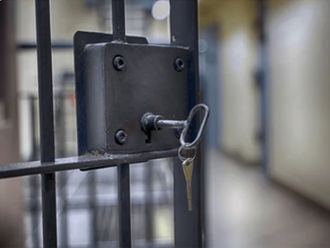Islamabad: Pakistan is unlikely to take on Lashkar-e-Taiba (LeT) any time soon, since this could drive it into a dangerous alliance with the Pakistani Taliban and other Al Qaida linked groups, security officials say.
That is a problem for India, which believes LeT not only runs its own sophisticated operations like the 2008 attack on Mumbai but is now encouraging Indian Muslims in the ‘Indian Mujahideen' to launch small-scale bomb attacks in Indian cities.
Security officials in Pakistan say the country needs to focus first on defeating Pakistani Taliban fighters in its tribal areas on the Afghan border rather than opening up a new front in its heartland Punjab province where Lashkar-e-Taiba is based.
"If you are so up to your neck in the tribal areas, would you like to open another front?" asked one security official.
Left alone
Unlike other militant groups, LeT has been careful to avoid attacks within Pakistan itself, focusing on India and Indian Kashmir, and as a result has been left largely alone.
"LeT continues to operate almost with impunity in Pakistan," said Rifaat Hussain, who heads the Department of Defence and Strategic Studies at Quaid-e-Azam University in Islamabad.
LeT is estimated to have between 2,000-3,000 gunmen and another 20,000 followers, many trained to fight and who could be mobilised against a crackdown.
The group could ultimately become a major risk for the West — LeT's charitable wing has wide support and funding from the Pakistani diaspora — and even threaten Pakistan itself if it decided to try to impose its Islamist views across the country.
Yet Pakistani security officials argue success in its battle against militants depends on its ability to isolate the enemy.
"Do not do anything where all the threat comes together," said one security official.
"If we open a front against LeT in central Punjab what would happen? What political support would be there? What is your capability? If you do it, would you overcome the militants or would the militants take over?"
Activities
Instead, as with other Punjab-based militant organisations, Pakistan prefers to monitor their activities closely rather than take action which could drive them further underground and create splinter groups which could prove even more dangerous.
"We know who they are, and we try to keep an eye on them," said another security official. "There is no official support."
Others, however, say its suits Pakistan to retain an organisation which could be used against India in the event of war, or, some say, to repay in kind what it sees as Indian support for separatists in its Baluchistan province.
Indian security officials and analysts question whether Pakistan would really go after the LeT, regardless of timing, given what they see as close ties to the Pakistani security establishment.
After a lull following the Mumbai attack, analysts say LeT is again using the Indian Mujahideen in a fresh wave of small-scale urban bombings in India in recent months.
"The recent bombings in Bangalore and Pune appear to have borne out fears that the Lashkar was facilitating the regrouping of the Indian Mujahideen," said Praveen Swami, an Indian journalist.
Facts: Roots of militant organisation
The group has its roots in the Markaz ad-Dawat wal-Irshad (MDI), an organisation created in the mid-1980s to support the jihad against the Soviet Union in Afghanistan and to provide Islamic charity and spiritual guidance.
The organisation then split into two wings: Lashkar-e-Taiba is its military wing. Founded in 1990, it began operations in Indian Kashmir in 1993. Jamaat ud-Dawa is its humanitarian wing. It provides extensive education, health care and disaster relief.Their religious ideology is Ahl-e-Hadith, a Salafist school akin to the Wahabbism of Al Qaida, which seeks a return to the ‘purer' practices of early Muslims. This distinguishes them from the Deobandi tradition of the Taliban and other Pakistan-based militant groups.
While the military focus has been on Kashmir, the ideology is pan-Islamic and in favour of the creation of a Caliphate in lands where Muslims once ruled — from India to Spain.
They are based in Punjab province and in Pakistani Kashmir. Jamaat ud-Dawa runs a large educational complex at Muridke near Lahore. The MDI's founder, Hafez Saeed, is a former professor and the organisation was seen as one of the more intellectual of the Islamist groups.












